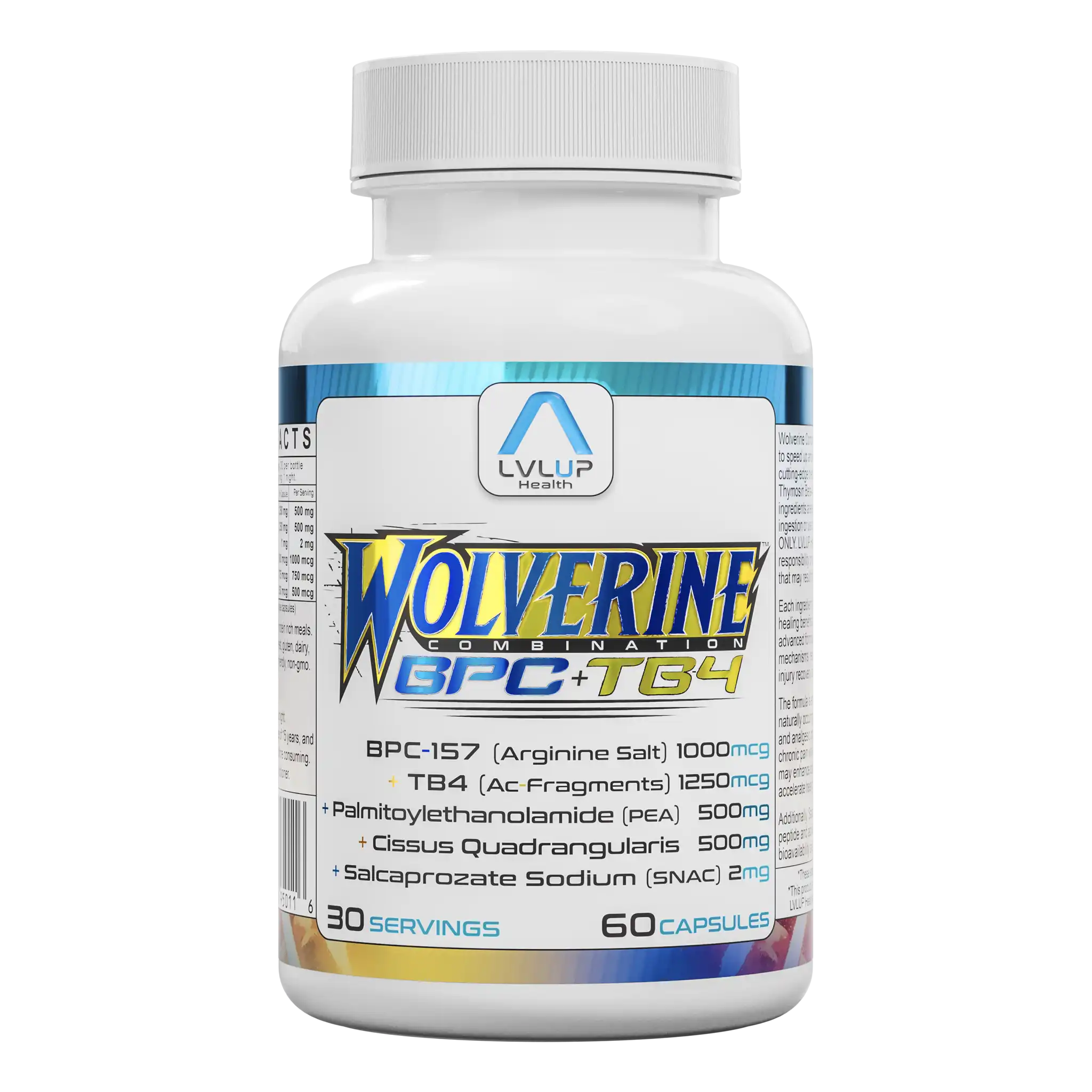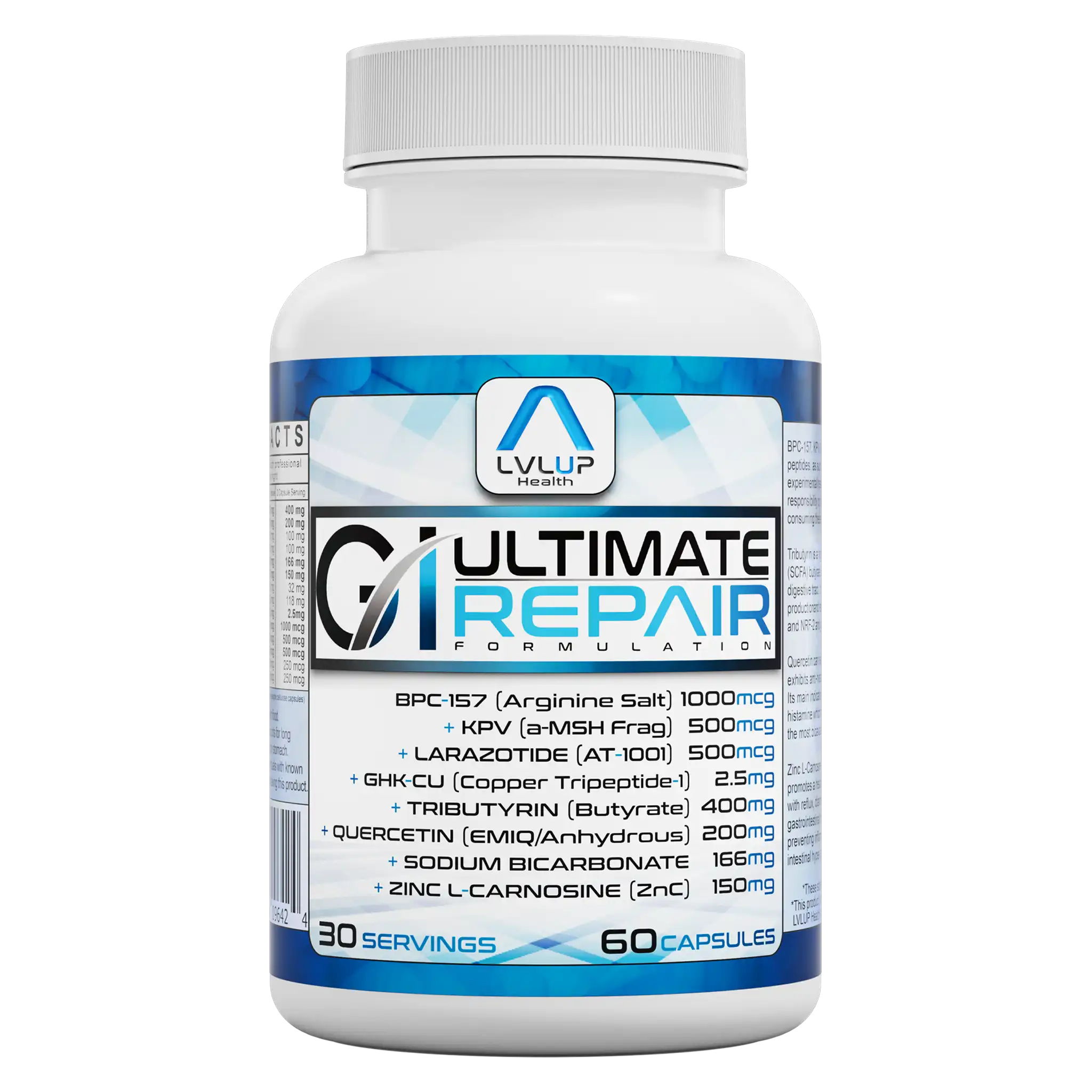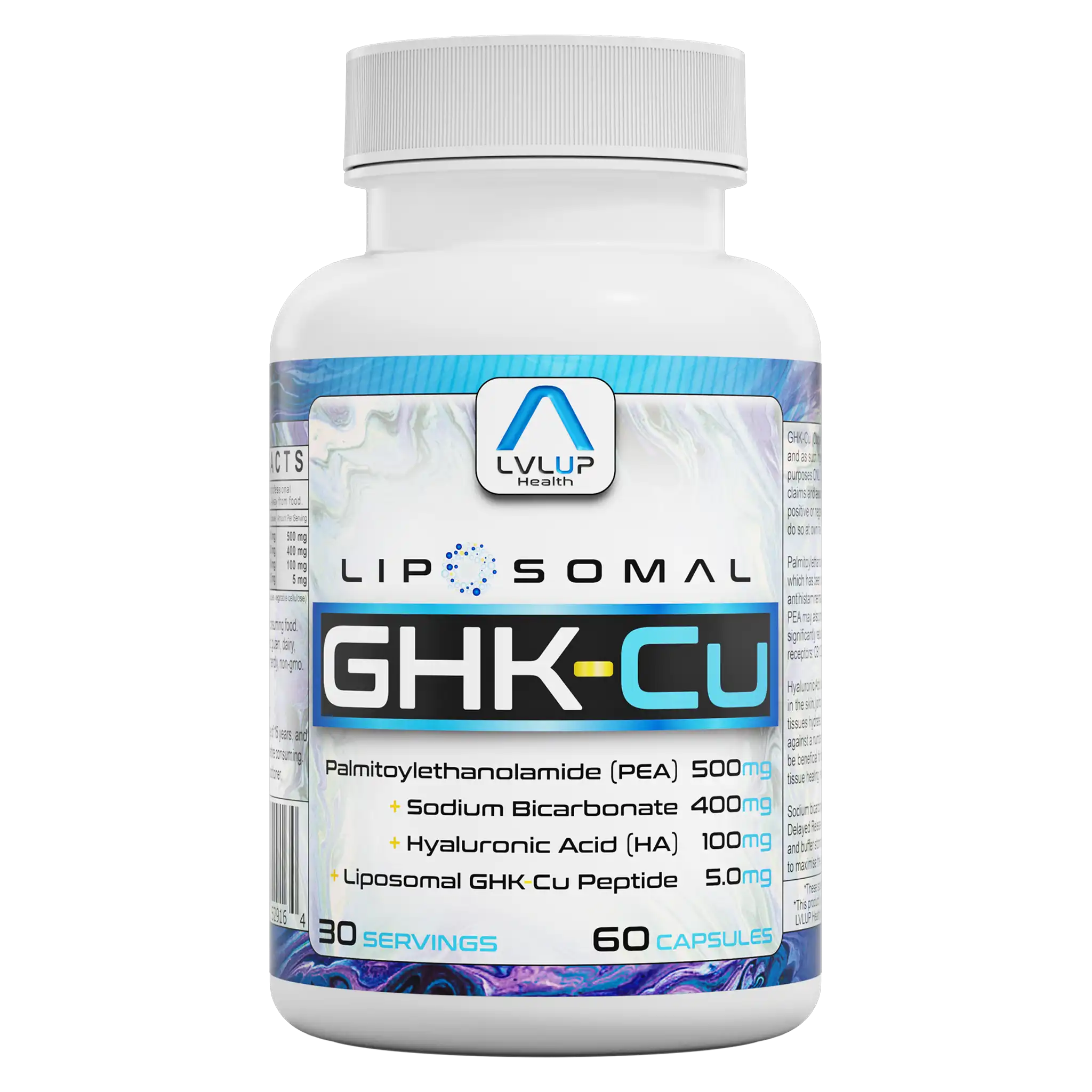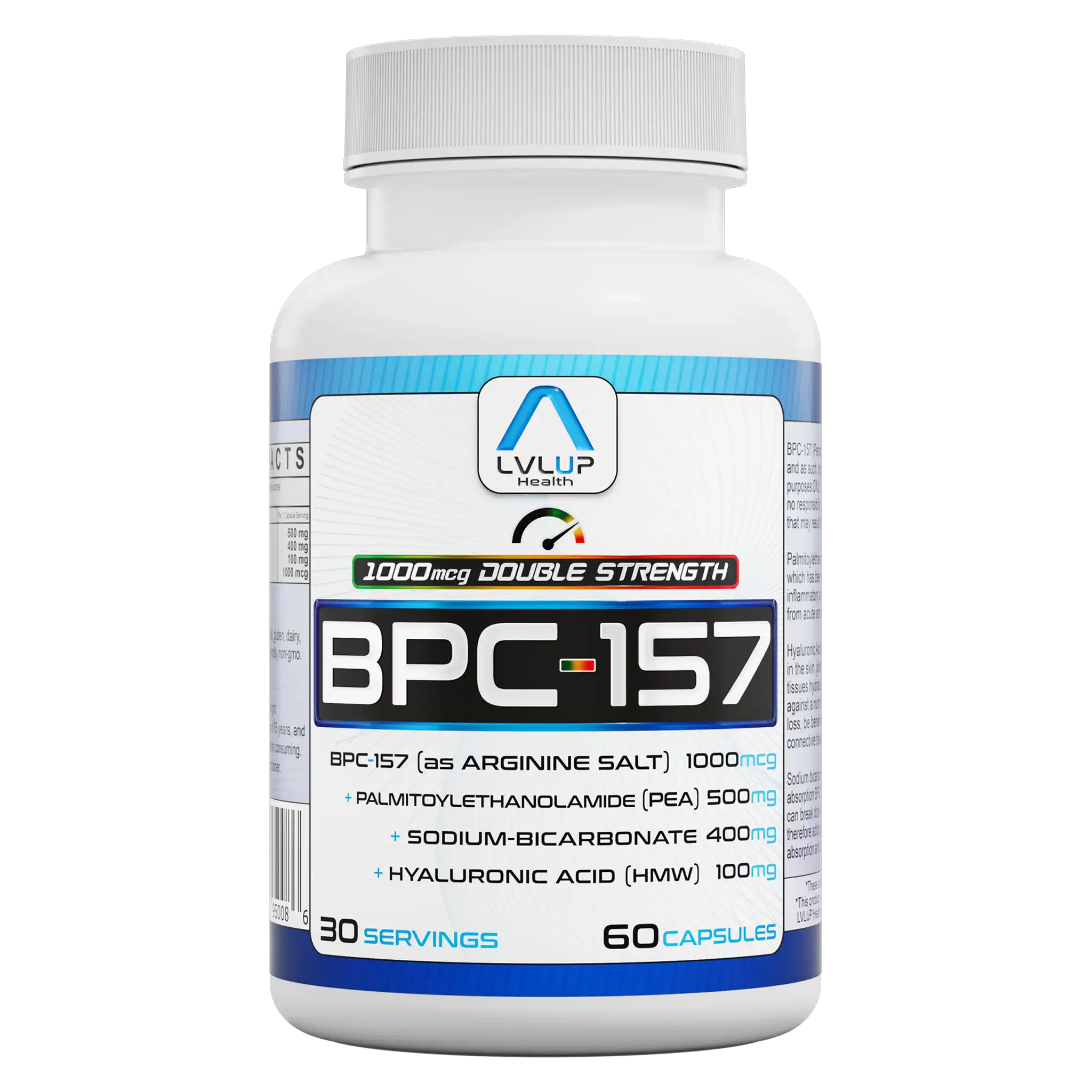Dihexa
About Dihexa
Getting to Know Dihexa
Dihexa is often lauded for its potential to enhance memory and mental clarity. It’s particularly noted for its ability to cross the blood-brain barrier, a rare feat among peptides. Once in the brain, Dihexa promotes the growth of synapses, akin to wiring up new connections in your brain’s circuitry. This process, called synaptogenesis, is vital for both learning new skills and recovering lost cognitive functions.
Benefits and Uses
Dihexa is known to increase levels of Hepatocyte Growth Factor (HGF), which aids neuron repair and growth. By supporting HGF, your brain might adapt better to stress, fatigue, or cognitive decline. Users often report sharper memory, faster problem-solving, and improved creativity. Emerging studies suggest potential applications for Alzheimer’s, Parkinson’s, depression, PTSD, and more. That said, individual responses can vary widely, so personal experiences may differ.
Included in Our Formulas
At LVLUP Health, Dihexa is a key component of our Neuro Regenerate formula. It works alongside peptides like P21 and N-Acetyl-Semax to support cognitive performance and neurological health. Whether you’re seeking sharper focus or recovering from mental fatigue, Dihexa-based formulations aim to provide targeted brain support.
Found In
Formulated With
Detailed Information
Molecular Dynamics of Dihexa
On a molecular level, Dihexa is derived from angiotensin IV but is chemically modified for optimal absorption and specificity. It crosses the blood-brain barrier via passive diffusion, acting as an agonist at the hepatocyte growth factor (HGF)/MET receptor axis. This enhances neurogenesis and synaptogenesis by upregulating synaptic proteins like PSD-95 and synapsin I. Experiments show increased dendritic spine density with chronic use, and Dihexa has shown neuroprotective effects against amyloid beta toxicity, a feature of Alzheimer’s pathology.
Preclinical Findings
In rodent models, Dihexa has restored cognitive performance in maze-based tasks, indicating improved memory and learning. These effects appear to be due to increased mature BDNF levels triggered by MET activation. Also, Dihexa has shown anti-apoptotic effects under oxidative stress, relevant to ischemic conditions. Its influence on inflammatory cytokines within neural environments suggests further protective properties. No direct effects on monoamines have been observed; benefits arise from synaptic remodeling and enhanced plasticity in hippocampal circuits.
Research and Development
Continued research aims at optimizing Dihexa for oral bioavailability and evaluating long-term safety in non-human primates. It remains a key element of our Neuro Regenerate formula, targeting multiple pathways for cognitive support and resilience.






